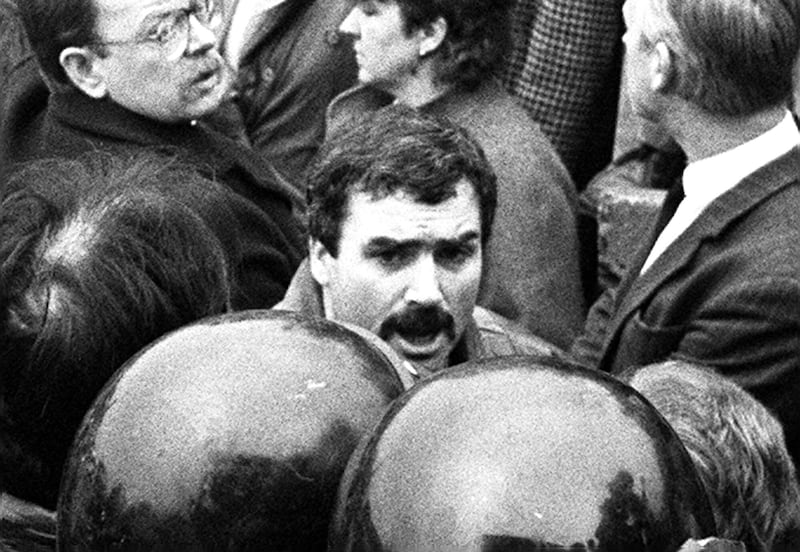The long-awaited Kenova report, published in interim form on Friday, shines another beam of light on the sordid depravity and moral bankruptcy at the dark heart of the so-called dirty war.
Yet too much still remains hidden in the shadows. It is an affront, for example, that Freddie Scappaticci has still not officially been named as Stakeknife, the British army’s top agent within the IRA’s self-styled internal security unit.
Scappaticci died last year, aged 77. Having been protected by the state and the IRA in life, it is a further insult to his victims that his name is being protected beyond the grave.
- The shadowy work of the British army’s FRU - self styled ‘fishers of men’ - revealed by Kenova reportOpens in new window
- Kenova: Republican leaders would ‘routinely grandstand and intimidate’ families after abduction, torture and murder of accused informersOpens in new window
- Kenova: Boutcher ‘troubled’ by ‘extremely fractious’ relationship with spy agency MI5Opens in new window
That decision was taken out of the hands of Jon Boutcher, who led Operation Kenova until he was appointed PSNI chief constable last year, by the British government’s ‘neither confirm nor deny’ dogma.
The report states that Scappaticci was a valuable asset and provided the security forces with high quality intelligence about the IRA. But it came at a dreadful cost - Kenova examined 101 murders and abductions, with Scappaticci linked directly to at least 14 murders and 15 abductions.

The number of lives saved because of intelligence provided by Stakeknife was in the high single or low double figures, says Mr Boutcher. This directly challenges “fables and fairy tales” that Scappaticci’s activities saved hundreds of lives. Similar logic was used to produce “equally exaggerated claims” for Brian Nelson, an army agent within the UDA.
The state, which is charged with protecting people’s lives, was effectively co-opted into the murder and mayhem of one of the IRA’s most deranged units. The state could have intervened to save lives but didn’t; what an indictment
It means that Scappaticci’s work for the British state resulted in more lives being lost than were saved. Many will take the view that the state, which is charged with protecting people’s lives, was effectively co-opted into the murder and mayhem of one of the IRA’s most deranged units. The state could have intervened to save lives but didn’t; what an indictment.
Mr Boutcher recommends that both the UK government and “the republican leadership” apologise to bereaved families and surviving victims for their respective roles in inflicting harm, murder, loss and intimidation.
- Gestures are important but we need a Stormont with substance - The Irish News viewOpens in new window
- MOT delays: Cracked ramps add to testing times for backlogged MOT system - The Irish News viewOpens in new window
- Does Jeffrey Donaldson plan to turn the DUP into the UUP for slow learners? - The Irish News viewOpens in new window
The government won’t do anything like that until the full report is published. Michelle O’Neill, as Sinn Féin’s most senior figure in the north, said “the IRA have left the stage” and that she was “sorry for every single loss of life and that is without exception”. Republicans may yet have to go further.
There will be more to come from Operation Kenova when the full report is published later this year. The families of Stakeknife’s victims will also receive reports about their loved ones.
The tenacious investigation led by Mr Boutcher is yet another demonstration of why the British government’s legacy act is an iniquitous dead end. This society needs more truth, more light, more courageous investigators, not less.







